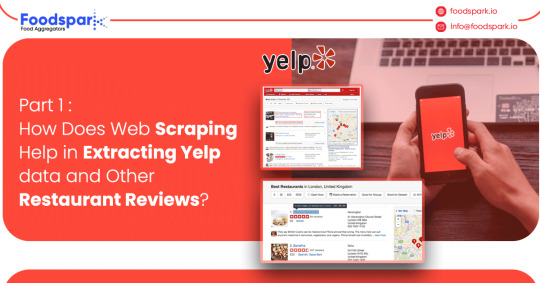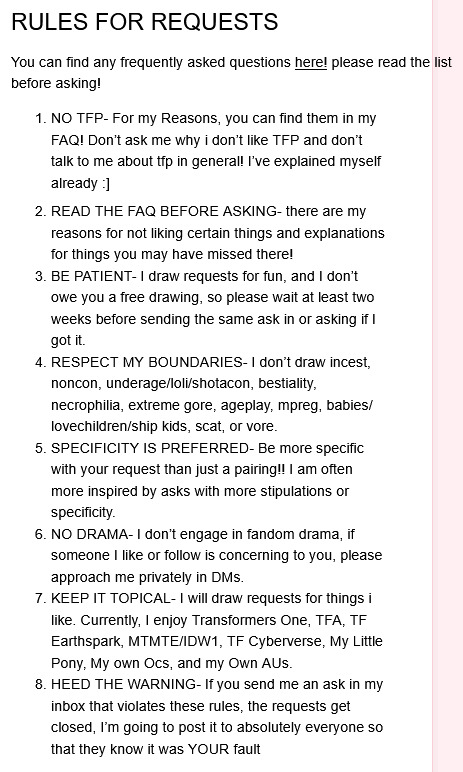#Accounting Software Review
Explore tagged Tumblr posts
Text
Everything You Need to Know About Demat Account

Investors initially used to open an account manually, which takes several days to activate, while online Demat account opening takes only 5 minutes. A Demat Account, short for Dematerialisation Account, allows you to hold your shares and assets electronically.
Read more..
#Demat Account#Open Demat Account#Demat Account Online#Demat Account opening#demat account charges#demat account login#Demat account app#Bigul Demat account#Bigul Demat account app#Online Demat Account Opening#Demat Account in India#algo trading#algo trading app#bigul#algo trading india#algo trading platform#algo trading strategies#bigul algo#free algo trading software#algorithm software for trading#finance#bigul algo trading app#bigul algo trading#bigul algo trading review#investment platform#investment#investment platform in india#algo trading software india#algorithmic trading software free#algorithmic trading
0 notes
Text
How to Choose the Best Accounting Software for Your Business
Introduction In the fast-moving environment related to the business world, keeping yourself on top of the finances will never be an easy task. In reality, a company can easily slip into disarray without proper supervision of its finances. No matter whether yours is a small startup or a big corporation, the right kind of accounting software will certainly work wonders in the smooth flow of financial operations. But with accounting software options galore, how do you choose a software that’s suitable for your business? The guide from TechtoIO will take you through everything you need to know to make an informed decision. Read to continue
#analysis#science updates#tech news#trends#adobe cloud#nvidia drive#science#business tech#technology#tech trends#CategoriesSoftware Solutions#Tagsaccounting software comparison#AI in accounting software#automated invoicing software#best accounting software for business#blockchain accounting solutions#choosing accounting software#cloud-based accounting software#expense tracking software#financial reporting tools#FreshBooks review#integrating accounting software#mobile accounting software#QuickBooks vs Xero#scalable accounting software#secure accounting software#small business accounting software#top accounting software 2024#user-friendly accounting software#Wave accounting software
0 notes
Text
Future Of AI In Software Development

The usage of AI in Software Development has seen a boom in recent years and it will further continue to redefine the IT industry. In this blog post, we’ll be sharing the existing scenario of AI, its impacts and benefits for software engineers, future trends and challenge areas to help you give a bigger picture of the performance of artificial intelligence (AI). This trend has grown to the extent that it has become an important part of the software development process. With the rapid evolvements happening in the software industry, AI is surely going to dominate.
Read More
#Accountability#Accuracy Accuracy#Advanced Data Analysis#artificial intelligence#automated testing#Automation#bug detection#code generation#code reviews#continuous integration#continuous deployment#cost savings#debugging#efficiency#Enhanced personalization#Ethical considerations#future trends#gartner report#image generation#improved productivity#job displacement#machine learning#natural language processing#privacy privacy#safety#security concerns#software development#software engineers#time savings#transparency
0 notes
Text

Foodspark provides web scraping services to extract Yelp data to fetch the information like review’s name, date, star ratings, etc. Yelp is a localized search engine for companies in your area. People talk about their experiences with that company in the form of reviews, which is a great source of information. Customer input can assist in identifying and prioritizing advantages and problems for future business development.
#web scraping services#grocerydatascraping#food data scraping services#food data scraping#fooddatascrapingservices#grocerydatascrapingapi#zomato api#restaurant data scraping#restaurantdataextraction#yelpwebscraping#buy yelp reviews#yelp#buy elite yelp reviews#buy yelp accounts#ghoulia yelps#yelp scraper#web scraping#web scraping software#restaurant#restaurant recipe#restaurant review#restaurant renovation
1 note
·
View note
Text
Meta has engaged in a “systemic and global” censorship of pro-Palestinian content since the outbreak of the Israel-Gaza war on 7 October, according to a new report from Human Rights Watch (HRW). In a scathing 51-page report, the organization documented and reviewed more than a thousand reported instances of Meta removing content and suspending or permanently banning accounts on Facebook and Instagram. The company exhibited “six key patterns of undue censorship” of content in support of Palestine and Palestinians, including the taking down of posts, stories and comments; disabling accounts; restricting users’ ability to interact with others’ posts; and “shadow banning”, where the visibility and reach of a person’s material is significantly reduced, according to HRW. Examples it cites include content originating from more than 60 countries, mostly in English, and all in “peaceful support of Palestine, expressed in diverse ways”. Even HRW’s own posts seeking examples of online censorship were flagged as spam, the report said. “Censorship of content related to Palestine on Instagram and Facebook is systemic and global [and] Meta’s inconsistent enforcement of its own policies led to the erroneous removal of content about Palestine,” the group said in the report, citing “erroneous implementation, overreliance on automated tools to moderate content, and undue government influence over content removals” as the roots of the problem.
[...]
Users of Meta’s products have documented what they say is technological bias in favor of pro-Israel content and against pro-Palestinian posts. Instagram’s translation software replaced “Palestinian” followed by the Arabic phrase “Praise be to Allah” to “Palestinian terrorists” in English. WhatsApp’s AI, when asked to generate images of Palestinian boys and girls, created cartoon children with guns, whereas its images Israeli children did not include firearms.
5K notes
·
View notes
Text
Free or Cheap Portuguese Learning Resources to Eat Feijoada to
I will update this list as I learn of any more useful ones. If you want general language learning resources check out this other post. This list is Portuguese specific. Find lists for other specific languages here.
For the purposes of this list "free" means something that is either totally free or has a useful free tier. "Cheap" is a subscription under $10USD a month, a software license or lifetime membership purchase under $100USD, or a book under $30USD. If you want to suggest a resource for this list please suggest ones in that price range that are of decent quality and not AI generated.
WEBSITES
Practice Portuguese - This website is European Portuguese specific. It has a lot of free lesson notes to read through and a free podcast. More in-depth lessons require a paid subscription that's a bit more on the expensive side. The website is available in multiple languages.
Learning Portuguese - A free website with beginner vocab and grammar lessons as well as reviews for different paid courses and country specific information. The website mostly focuses on European and African Portuguese but does have some stuff for Brazillian Portuguese. The website is in English.
Portuguese Government Sponsored eCourses - The Portuguese government's institute for promoting Portuguese language and culture has a few free online courses. An account is require to take the courses and the website can be viewed in English or Portuguese.
Portuguese With Leo - I have linked to this website's free resources page. The free resources seem more useful for beginner learners. He also has a few free video lessons. This website also provides courses for intermediate learners but they're pretty expensive. The website is available in English and Portuguese.
Portuguese With Eli - This website focuses on Brazilian Portuguese. There are paid courses and groups but there's also a lot of free articles and blog posts about grammar and vocabulary. The website is in English.
Really Learn Portuguese - This website focuses on Brazillian Portuguese. They have free lessons for beginners, a blog, and flashcard lists. They also have a paid tier at $4.50 a month with audio recordings, video lessons, and worksheets. The website is in English.
learnbrazilianportuguese.com - This website has a free English language blog with learning tips and a limited amount of free scheduled courses. They require you to create an account to view the entire site.
Ciberduvidas - A website with explanations of more complex concepts in the language. The website is entirely in Portuguese.
YOUTUBE CHANNELS
Learn Portuguese Today - A channel aimed at beginners with information on vocabulary and grammar. The channel is mainly in English and the channel host is from Portugal.
Decoding Words - A channel with lessons for beginners and detailed breakdowns of different clips of native speakers talking. The channel is mostly in English and the channel host is from Brazil.
Easy Portuguese - A channel part of the easy languages network that has a combination of videos with useful phrases for beginners and interviews on the street with people in Brazil. Their videos have dual language subtitles in Portuguese and English.
Portuguese Tune - A newer channel that seems to be posting regularly. It’s a comprehensible input channel in European Portuguese for beginner to lower intermediate learners. The host teaches entirely in Portuguese and uses a whiteboard and other visual aids.
Portuguese With Cristina - A channel aimed at intermediate learners with videos and podcasts on a variety of topics. The channel is entirely in European Portuguese.
Teach Yourself Portuguese - A channel with podcasts, listening practice, and grammar videos for absolute beginner to intermediate learners. Videos are in Brazilian Portuguese.
Talk the Streets - A channel with pronunciation and learning tips and useful phrases in different subjects. The host teaches European Portuguese but herself speaks Portuguese as a second language. The channel is mostly in English.
Plain Portuguese - This channel has a lot of videos on grammar and vocabulary and also offers explanations of scenes from tv and movies. The host is from Brazil and uses a combination of English and Portuguese.
Speaking Brazilian - This channel has a lot of tips on grammar, vocab, and pronunciation and appears to be aimed at beginner to intermediate learners. Videos are all in Brazilian Portuguese and have dual language Portuguese and English subtitles onscreen.
READING PRACTICE
Read Brazilian Portuguese - A website with short articles in Brazilian Portuguese. Each article has comprehension questions and a list of key vocab words. The website is in a mix of Portuguese and English.
Portuguese Reading Comprehension Texts - A graded reader for beginners with 30 different texts on a variety of different topics. The link leads to the Harvard bookstore to buy the book for $12. I also saw it used on Amazon for $10.
Short Stories in Brazilian Portuguese by Olly Richards - This book ranges from $5-$15 depending on the format. Every chapter has comprehension questions and a vocab list. You can also find it used for cheaper.
Portuguese With Luciana - This website has a few free short stories for beginners and upper beginners.
Graded Readers by Susana Morais - This author has written short stories and mystery stories for learners from absolute beginner to upper intermediate and her books are organized by CEFR level. The books are about $25 each new but I’ve seen them as low as $4 used.
PODCASTS
Brazilian Talk - A podcast about language and culture for intermediate to advanced learners. The podcast is entirely in Brazilian Portuguese.
Easy Portugués - A podcast entirely in Brazilian Portuguese for intermediate to advanced learners. The hosts discuss a variety of topics and give tips on how to sound more natural when speaking.
Portuguese With Carla - A free beginner audio course in European Portuguese.
Portuguese Lab - A podcast entirely in European Portuguese about various topics for A1 and A2 beginner and upper beginner learners on the CEFR scale.
Todo Mundo Pod - This website has two podcasts. One partially in English that has tips for learners and one fully in Brazilian Portuguese. They also have a blog and the website is available in Portuguese and English.
Fala Gringo - A podcast fully in Brazillian Portuguese that goes over various cultural topics for intermediate level learners.
SELF STUDY TEXTBOOKS AND DICTIONARIES
Basic Portuguese from Mcgraw Hill - A textbook that is also a workbook. It's generally $20 for the print edition and $10 for the digital edition.
Gramática portuguesa - A Portuguese grammar textbook entirely in Portuguese. This same publisher also has a general course called Portugués fácil. The books go for somewhere between $20-$25 new but cheaper digital and used versions are available.
Brazilian Portuguese For dummies - The for dummies series has one of the cheaper self study books for Portuguese. A new copy at full price is about $25 but older editions and used copies also go for cheaper.
The Oxford New Portuguese Dictionary - This is an older edition but it's also only $9 and there are used copies for sale. Newer editions are around $13.
Português para principiantes - This is an online book of free study material from the University of Wisconson-Madison
KIDS SHOWS
Turma da Mônica
Irmão do Jorel
Peiexonauta
185 notes
·
View notes
Text
Conspiratorialism as a material phenomenon

I'll be in TUCSON, AZ from November 8-10: I'm the GUEST OF HONOR at the TUSCON SCIENCE FICTION CONVENTION.

I think it behooves us to be a little skeptical of stories about AI driving people to believe wrong things and commit ugly actions. Not that I like the AI slop that is filling up our social media, but when we look at the ways that AI is harming us, slop is pretty low on the list.
The real AI harms come from the actual things that AI companies sell AI to do. There's the AI gun-detector gadgets that the credulous Mayor Eric Adams put in NYC subways, which led to 2,749 invasive searches and turned up zero guns:
https://www.cbsnews.com/newyork/news/nycs-subway-weapons-detector-pilot-program-ends/
Any time AI is used to predict crime – predictive policing, bail determinations, Child Protective Services red flags – they magnify the biases already present in these systems, and, even worse, they give this bias the veneer of scientific neutrality. This process is called "empiricism-washing," and you know you're experiencing it when you hear some variation on "it's just math, math can't be racist":
https://pluralistic.net/2020/06/23/cryptocidal-maniacs/#phrenology
When AI is used to replace customer service representatives, it systematically defrauds customers, while providing an "accountability sink" that allows the company to disclaim responsibility for the thefts:
https://pluralistic.net/2024/04/23/maximal-plausibility/#reverse-centaurs
When AI is used to perform high-velocity "decision support" that is supposed to inform a "human in the loop," it quickly overwhelms its human overseer, who takes on the role of "moral crumple zone," pressing the "OK" button as fast as they can. This is bad enough when the sacrificial victim is a human overseeing, say, proctoring software that accuses remote students of cheating on their tests:
https://pluralistic.net/2022/02/16/unauthorized-paper/#cheating-anticheat
But it's potentially lethal when the AI is a transcription engine that doctors have to use to feed notes to a data-hungry electronic health record system that is optimized to commit health insurance fraud by seeking out pretenses to "upcode" a patient's treatment. Those AIs are prone to inventing things the doctor never said, inserting them into the record that the doctor is supposed to review, but remember, the only reason the AI is there at all is that the doctor is being asked to do so much paperwork that they don't have time to treat their patients:
https://apnews.com/article/ai-artificial-intelligence-health-business-90020cdf5fa16c79ca2e5b6c4c9bbb14
My point is that "worrying about AI" is a zero-sum game. When we train our fire on the stuff that isn't important to the AI stock swindlers' business-plans (like creating AI slop), we should remember that the AI companies could halt all of that activity and not lose a dime in revenue. By contrast, when we focus on AI applications that do the most direct harm – policing, health, security, customer service – we also focus on the AI applications that make the most money and drive the most investment.
AI hasn't attracted hundreds of billions in investment capital because investors love AI slop. All the money pouring into the system – from investors, from customers, from easily gulled big-city mayors – is chasing things that AI is objectively very bad at and those things also cause much more harm than AI slop. If you want to be a good AI critic, you should devote the majority of your focus to these applications. Sure, they're not as visually arresting, but discrediting them is financially arresting, and that's what really matters.
All that said: AI slop is real, there is a lot of it, and just because it doesn't warrant priority over the stuff AI companies actually sell, it still has cultural significance and is worth considering.
AI slop has turned Facebook into an anaerobic lagoon of botshit, just the laziest, grossest engagement bait, much of it the product of rise-and-grind spammers who avidly consume get rich quick "courses" and then churn out a torrent of "shrimp Jesus" and fake chainsaw sculptures:
https://www.404media.co/email/1cdf7620-2e2f-4450-9cd9-e041f4f0c27f/
For poor engagement farmers in the global south chasing the fractional pennies that Facebook shells out for successful clickbait, the actual content of the slop is beside the point. These spammers aren't necessarily tuned into the psyche of the wealthy-world Facebook users who represent Meta's top monetization subjects. They're just trying everything and doubling down on anything that moves the needle, A/B splitting their way into weird, hyper-optimized, grotesque crap:
https://www.404media.co/facebook-is-being-overrun-with-stolen-ai-generated-images-that-people-think-are-real/
In other words, Facebook's AI spammers are laying out a banquet of arbitrary possibilities, like the letters on a Ouija board, and the Facebook users' clicks and engagement are a collective ideomotor response, moving the algorithm's planchette to the options that tug hardest at our collective delights (or, more often, disgusts).
So, rather than thinking of AI spammers as creating the ideological and aesthetic trends that drive millions of confused Facebook users into condemning, praising, and arguing about surreal botshit, it's more true to say that spammers are discovering these trends within their subjects' collective yearnings and terrors, and then refining them by exploring endlessly ramified variations in search of unsuspected niches.
(If you know anything about AI, this may remind you of something: a Generative Adversarial Network, in which one bot creates variations on a theme, and another bot ranks how closely the variations approach some ideal. In this case, the spammers are the generators and the Facebook users they evince reactions from are the discriminators)
https://en.wikipedia.org/wiki/Generative_adversarial_network
I got to thinking about this today while reading User Mag, Taylor Lorenz's superb newsletter, and her reporting on a new AI slop trend, "My neighbor’s ridiculous reason for egging my car":
https://www.usermag.co/p/my-neighbors-ridiculous-reason-for
The "egging my car" slop consists of endless variations on a story in which the poster (generally a figure of sympathy, canonically a single mother of newborn twins) complains that her awful neighbor threw dozens of eggs at her car to punish her for parking in a way that blocked his elaborate Hallowe'en display. The text is accompanied by an AI-generated image showing a modest family car that has been absolutely plastered with broken eggs, dozens upon dozens of them.
According to Lorenz, variations on this slop are topping very large Facebook discussion forums totalling millions of users, like "Movie Character…,USA Story, Volleyball Women, Top Trends, Love Style, and God Bless." These posts link to SEO sites laden with programmatic advertising.
The funnel goes:
i. Create outrage and hence broad reach;
ii, A small percentage of those who see the post will click through to the SEO site;
iii. A small fraction of those users will click a low-quality ad;
iv. The ad will pay homeopathic sub-pennies to the spammer.
The revenue per user on this kind of scam is next to nothing, so it only works if it can get very broad reach, which is why the spam is so designed for engagement maximization. The more discussion a post generates, the more users Facebook recommends it to.
These are very effective engagement bait. Almost all AI slop gets some free engagement in the form of arguments between users who don't know they're commenting an AI scam and people hectoring them for falling for the scam. This is like the free square in the middle of a bingo card.
Beyond that, there's multivalent outrage: some users are furious about food wastage; others about the poor, victimized "mother" (some users are furious about both). Not only do users get to voice their fury at both of these imaginary sins, they can also argue with one another about whether, say, food wastage even matters when compared to the petty-minded aggression of the "perpetrator." These discussions also offer lots of opportunity for violent fantasies about the bad guy getting a comeuppance, offers to travel to the imaginary AI-generated suburb to dole out a beating, etc. All in all, the spammers behind this tedious fiction have really figured out how to rope in all kinds of users' attention.
Of course, the spammers don't get much from this. There isn't such a thing as an "attention economy." You can't use attention as a unit of account, a medium of exchange or a store of value. Attention – like everything else that you can't build an economy upon, such as cryptocurrency – must be converted to money before it has economic significance. Hence that tooth-achingly trite high-tech neologism, "monetization."
The monetization of attention is very poor, but AI is heavily subsidized or even free (for now), so the largest venture capital and private equity funds in the world are spending billions in public pension money and rich peoples' savings into CO2 plumes, GPUs, and botshit so that a bunch of hustle-culture weirdos in the Pacific Rim can make a few dollars by tricking people into clicking through engagement bait slop – twice.
The slop isn't the point of this, but the slop does have the useful function of making the collective ideomotor response visible and thus providing a peek into our hopes and fears. What does the "egging my car" slop say about the things that we're thinking about?
Lorenz cites Jamie Cohen, a media scholar at CUNY Queens, who points out that subtext of this slop is "fear and distrust in people about their neighbors." Cohen predicts that "the next trend, is going to be stranger and more violent.”
This feels right to me. The corollary of mistrusting your neighbors, of course, is trusting only yourself and your family. Or, as Margaret Thatcher liked to say, "There is no such thing as society. There are individual men and women and there are families."
We are living in the tail end of a 40 year experiment in structuring our world as though "there is no such thing as society." We've gutted our welfare net, shut down or privatized public services, all but abolished solidaristic institutions like unions.
This isn't mere aesthetics: an atomized society is far more hospitable to extreme wealth inequality than one in which we are all in it together. When your power comes from being a "wise consumer" who "votes with your wallet," then all you can do about the climate emergency is buy a different kind of car – you can't build the public transit system that will make cars obsolete.
When you "vote with your wallet" all you can do about animal cruelty and habitat loss is eat less meat. When you "vote with your wallet" all you can do about high drug prices is "shop around for a bargain." When you vote with your wallet, all you can do when your bank forecloses on your home is "choose your next lender more carefully."
Most importantly, when you vote with your wallet, you cast a ballot in an election that the people with the thickest wallets always win. No wonder those people have spent so long teaching us that we can't trust our neighbors, that there is no such thing as society, that we can't have nice things. That there is no alternative.
The commercial surveillance industry really wants you to believe that they're good at convincing people of things, because that's a good way to sell advertising. But claims of mind-control are pretty goddamned improbable – everyone who ever claimed to have managed the trick was lying, from Rasputin to MK-ULTRA:
https://pluralistic.net/HowToDestroySurveillanceCapitalism
Rather than seeing these platforms as convincing people of things, we should understand them as discovering and reinforcing the ideology that people have been driven to by material conditions. Platforms like Facebook show us to one another, let us form groups that can imperfectly fill in for the solidarity we're desperate for after 40 years of "no such thing as society."
The most interesting thing about "egging my car" slop is that it reveals that so many of us are convinced of two contradictory things: first, that everyone else is a monster who will turn on you for the pettiest of reasons; and second, that we're all the kind of people who would stick up for the victims of those monsters.

Tor Books as just published two new, free LITTLE BROTHER stories: VIGILANT, about creepy surveillance in distance education; and SPILL, about oil pipelines and indigenous landback.


If you'd like an essay-formatted version of this post to read or share, here's a link to it on pluralistic.net, my surveillance-free, ad-free, tracker-free blog:
https://pluralistic.net/2024/10/29/hobbesian-slop/#cui-bono

Image: Cryteria (modified) https://commons.wikimedia.org/wiki/File:HAL9000.svg
CC BY 3.0 https://creativecommons.org/licenses/by/3.0/deed.en
#pluralistic#taylor lorenz#conspiratorialism#conspiracy fantasy#mind control#a paradise built in hell#solnit#ai slop#ai#disinformation#materialism#doppelganger#naomi klein
308 notes
·
View notes
Text
The first half of Desert Skies season 1 was made in a large hollow room, the latter half was made in a very unsturdy uncomfortable blanket fort.
The mic I use goes for $100 brand new which is nothing compared to many, and I’ll replace it with the same one if it ever breaks.
First episodes I ever made were made using free software, and the only reason I use a different software now is because it’s part of the Adobe subscription I have for other products I need. They both do the exact same things.
I never worked in sound engineering and still have no idea what half the things I do to clean up the audio are actually doing. I don’t understand the terms. I press buttons till it sounds right.
I never wrote a fiction script in my life. I didn’t finish college. I’m in recovery from a serious mental illness and have been for many years.
I’m ridiculously unorganized.
I didn’t have time to make a show. I operated at a loss for nearly a year and after that only made enough to pay for my hosting fees and software. I had a family I supported and they’re loud (but I love them).
I did it without a team. I did it without previous voice acting experience or other actors. I did it with massive amounts of self-doubt. I played every character.
I did it anonymously for like the first 6 episodes because of how afraid I was.
I took 3 month breaks between some episodes and then would have 2 episodes release back to back. At multiple points people thought my season had ended. It took me almost a year and a half to finish my 13 episode season
I still made it after some really mean reviews. And after constantly being compared (often kindly. often negatively) to a massive show I’d never heard of.
I made it after all the articles saying I’d never get listens because the podcast world is flooded. I continued making it after I found out I wasn’t doing something new, that there were like 8,000 other shows in the category.
Next month DS is on track to hit 1 million downloads.
I’m so glad I made it. It’s brought me so much joy. And I write none of this to brag, but I’m damn proud of what I’ve accomplished.
I’m just here to tell you this:
THERE ARE NO RULES
THERE ARE NO RULES
THERE ARE NO RULES
You can make one or a hundred shows if you want to, because there are no rules
You can make it by yourself or make your grandma voice act for you, because there are no rules
You can record it on a cassette tape and mail it to random addresses, because there are no rules
You can make it for one person, or for yourself, because there are no rules
You can make it a found footage or a full cast or improvise it or release one episode a year for a decade, because there are no rules
You can advertise it, or make social accounts, or don’t. There are no rules
You can record it into your phone, or your moms phone, or into a Talkboy because there are no rules
The only thing you can’t do is never make it. That’s not allowed
195 notes
·
View notes
Text
How much should it cost to be a writer?
It depends what route you’re taking. If you are planning to go for traditional publishing, which looks like you finishing a manuscript and then querying agents who will then take your book to publishers, you should be paying for basically nothing. One exception would be if you decide to hire an editor to get a pass over your manuscript and/or query package before sending it off, but this is not required.
If you are in the process of trying to get your manuscript traditionally published, you may be approached by a “publisher” offering to publish your manuscript for a fee. THIS IS A SCAM! An author should never be paying for “publishing services.” Anyone asking you to pay for your own printing, marketing, etc. costs is taking advantage of you. These are called vanity publishers and they will not turn you a profit, help you attract readers, or provide you the prestige of being published.
Always check on Writer Beware - search for the name of the person or company. You can also just google that name along with the word “scam” or “reviews.” In general, don’t let yourself be blinded by dreams, or let yourself be convinced that something is a good idea because you really want it to be true. Never, ever, ever pay a publisher.
If you are going the self-publishing route, you will be paying for certain things, but none of those should be payment to be published. You are the publisher. Uploading your manuscript to Amazon or other marketplaces is free. However, you will be paying for things that a publisher typically pays for. This could include:
-Cover art - you could do this yourself, though this isn't recommended. A good cover is key to a book's success, so budget to purchase a pre-made book cover, or hire a professional cover artist.
To find pre-made book covers, you can just Google "premade book covers," or check one of these sites: BookCoverZone RockingBookCovers Beetiful
And here's a list of places to buy both custom and pre-made cover designs that's a good start. You can also check Reedsy and Etsy for people listing cover design services. If there is a self-pubbed author whose covers you love, try asking them what artist they use.
-Formatting - you could do this yourself using a formatting program like Atticus, or you could hire someone who does professional e-book formatting.
Here's an article on the turbo-DIY route. Here's a list of formatting programs you can use. To hire someone, you can simply search for book formatting services or look at places where people list such services for hire, like Reedsy, Fiverr, or certain Reddit boards.
-Ad campaigns - you may want to pay for ad campaigns on platforms like Meta or Amazon. More niche, author-specific platforms like BookBub, Book Funnel, or Book Sirens also come with certain costs.
-Author services - you may wish to hire an expert in things like marketing, blurb copy, social media metrics, newsletter management, etc. You can find information on that here.
Be aware that scam publishers might try to pitch themselves as "author services" - you should be paying someone to help you with specific aspects of your self publishing work, NOT paying to be published.
-Software and platforms - whether it's a subscription to Duotrope, a paid Scribophile account, access to pro Canva features, etc. you may decide to pay for tools that you will use to do your work well.
-Expert advice - some people offer courses, books, or other resources on how to do specific things like write a compelling blurb or run an effective ad campaign. You may notice that a lot of the links I shared here will include upsells from people doing exactly this!
Be very cautious about this, as most of these people claim that they make tons of money on their self published books, but really, they make their money selling this stuff to people like you. Always check out a person’s free resources first, and wait to invest in this sort of thing until you have a specific question you need answered or are trying to do a very particular thing that you need granular guidance on.
One thing you should NOT pay for is a review, feature, or interview. Self-published authors will be approached by a lot of scammers who claim that, for a nominal fee, they will share information about your book to their huge audiences. These are completely useless and a waste of money. Never spend money on this.
Always keep track of what you are spending on all of this. You may be able to deduct it from taxes you pay on your income from writing, and you will want to really understand what your profit margins look like.
68 notes
·
View notes
Text
ARCHIE-SUNSHINE'S FAQ!
Hi!! I'm putting this together as a quick helpful post to clear stuff up regarding my inbox, because I've been getting a lot of similar questions and I want to be able to tap a sign to let people know what they gotta know without putting in so much effort!
So, here's my FAQ for my inbox!
1: What drawing software/hardware do you use? Are you a traditional only artist? What Brushes do you use?
I use clip studio paint and an ancient wacom tablet that's been chugging since 2018 :]
For my brushes, here are all of the ids!

I very rarely do traditional art, and for them, i use a moleskine sketchbook and micron plastic nib pens!
2: Is your Inbox getting my message?

Yes it is! I just usually have around 100 other asks in my inbox that im also working through!! If your ask was super nonspecific as well, I might have deleted it because I didn't know where to start! Sometimes i just delete stuff because its sat around too long and i feel awkward answering it! i am a very busy person.
3. Are you taking commissions?
I open 2-4 slots for commissions every stream! I also open non stream commissions every now and then around the middle of the month typically!
4. What are your thoughts on [Insert TFP character here]/why don't you like tfp
I don't have any because I only watched half a season of that show and got bored to death! and i dislike the show because the pacing is weird, the writing is sub par, the characters bore me to death save for a few notable exceptions, the music is boring, the designs are weird and complicated, and every attempt at comedy falls flat. aka, its just not my cup of tea!
Additionally, over the year I've been posting on this blog, I have been asked at least once every single month for an answer to this question, and it hasn't changed and people still don't read my faq. and suspiciously after three of those times, my blog has been mysteriously pixelated.
... I'm not saying anyone reported me. But im not not saying that.
So thats another reason i don't like tfp.

5. Will you draw/What are your thoughts on MPREG/MECHPREG
I don't like pregnancy when it involves a fetus, though I do enjoy dirty talk and scenarios surrounding breeding! I do enjoy oviposition/egg laying, but I prefer it as part of a monster fucking scenario.
In addition, I have a GENUINE FEAR AND DISCOMFORT of situations regarding fetal pregnancy. Talking about it makes me feel sick and upset. Please try to take that into account.

6. What would you think [insert character/pairing here]'s kids would look like/what would [insert character] look like as a kid/do you think [insert couple here] would be great parents?
I don't like talking about kids or children!! and I don't like talking about couples as parents in general! It's really uncomfortable for me PERSONALLY, as someone who primarily draws and posts pornographic content, to comment on children. I really don't have anything to add to the conversation, and I prefer to talk about the characters themselves rather than hypothetical relationships they may have with children.

7. Can i make fanworks of your ocs/AU/fics/art?
YES!! YESYESYES ABSOLUTELY PRETTY PLEASE YES ALWAYS AND FOREVER! All i ask is that you tag me or send me the link to wherever youve posted this, feel free to gift me stuff on ao3 if you like as well, genuinely nothing brings me more joy than inspiring other people so PLEASE PLEASE PLEASE feel free!!
8. What are your limits for commissions?
I drew up a helpful little chart for it! anything not on here, you can dm or ask me about!

9. What are your request rules?/I can't find your request rules!
Here you go! here's all of them one more time for those on mobile! Please review them whenever you ask for art for the first time, and refresh your memory whenever you're unsure of if something is alright to ask!

151 notes
·
View notes
Text
Webcomic 'Homestuck' Canceled For Promoting Bad Password Security
(page 456-459)
8/10/2009 Wheel Spin: Parent Bad :( Verdict: INCORRECT
8/11/2009 Wheel Spin: being silly :3c Verdict: CORRECT, but behind at least 10 layers of irony

In the far future, somebody might call this update a time capsule of the 2000s. If computers change significantly, or something. page 456 comments on Dave's bro's computer being password protected, suggesting that this isn't a cultural norm - the newly-released Windows 7 still doesn't require user accounts to have a password. In Homestuck, the password is used to protect 'incredible top secret shit,' so password protecting a personal home computer might be associated with shadier online behavior.
Bro's password is six characters, and is 'the most awesome thing it can be' according to Dave and his bro, so it's probably lilcal. (It could also be puppet, but personally my passwords are always specific characters, song titles etc, not general concepts. I don't know if other people are different. for what it's worth lilcal is also a slightly more secure password than puppet which is A SINGULAR DICTIONARY WORD). Bro also trusts Dave with his password - either because he doesn't think Dave will do anything to mess up his computer, or because he's daring Dave to use it, similar to leaving the Xbox switched on mid-game.
On page 457 we see Bro's desktop, which we can compare to Dave's desktop on page 323. They both have wallpapers from And It Don't Stop, showing us a chain of game recommendations from Bro -> Dave -> John. Dave, like Rose and John, has some character in the names of his desktop folders, while his bro has seven identically named New Folders scattered around the screen. This adds to the sense that Bro is paranoid about people looking at his computer - he's purposefully making it impossible to navigate. The hidden-identity hat and dark glasses iconography on the password entry screen has the same effect.
Bro also has a program called Delirious Biznasty, which has a rad skater dude for its icon. This could be a web browser, but I think it's more likely some kind of torrenting application, I think that'd fit his vibe. The web browsers we know are Typheus, Cetus and Hephaestus, which are all Greek mythological references with cartoon-styled icons, and Delirious Biznasty doesn't fit the pattern. Based on Dave's relationship to his bro, Bro probably uses Hephaestus too and just doesn't have a desktop shortcut.
Dave and his bro both use the Complete Bullshit content aggregator, which we are forced to witness on pages 458 and 459. Content aggregators are pretty common customizable feeds that people use to keep up with a lot of websites at once, when checking 20+ separate sites a day gets too time consuming. RSS readers are a common form of this that can host a lot of different types of content, but there are also aggregators specifically for webcomics. These are controversial - they're generally well intentioned projects made for free by webcomic fans who want to check for updates easily and keep up with a lot of stories, and want to help other fans do the same. However, they can redirect traffic away from actual sites that host webcomics, meaning that independent webcomic artists might miss out on ad revenue or merch sales, or are less likely to sell ads because their sites don't look as well-trafficked as they are. I don't know if Andrew Hussie has a strong opinion on comics aggregators, but it's possible this terrible to use, unstable and unreadable version is a criticism of the concept.
Complete Bullshit also feels like Dave's bro's equivalent of Serious Business, as they're both digital programs with adjective-noun titles. I wonder if Rose's mom will get her own software.
It's sweet that Bro keeps up with Dave's projects, including Sweet Bro & Hella Jeff and his GameBro review blog. It shows that their relationship isn't 100% one sided, Bro cares for Dave and/or thinks he's cool at least a little bit. It's also fun that Dave is checking to see if his own webcomic has updated, which could be bad memory due to having a lot of projects on the go, or could be Dave checking to make sure his update has gone through and posted successfully. Very reasonable, as it must be a challenge to upload such high quality images.
I will probably make a post digging into Sweet Bro & Hella Jeff at some point, but I'm still peeling the onion of its irony right now so I'll just say: when exactly did Dave find the time to make these comics?
#homestuck#reaction#i actually have a deep curiosity abt other peoples passwords but it is an incredibly suspicious question to ask anyone#chrono
63 notes
·
View notes
Text
This month, Andrew Bernier, a US Army Corps of Engineers researcher and a union leader, says that he has received a barrage of menacing messages from the same anonymous email account. Unfolding like short chapters in a dystopian novel, they have spoken of the genius of Elon Musk, referenced the power of the billionaire’s so-called Department of Government Efficiency (DOGE), and foretold the downfall of “corrupt” union bosses.
But the most eerie thing about the emails, which Bernier says began arriving after he filed an official charge accusing the Trump administration of violating his union’s collective bargaining agreement, is that they included personal details about his life—some of which he believes might have come from surveillance of his work laptop. The author referenced Bernier’s union activities, nickname, job, travel details, and even the green notebook he regularly uses. The most recent email implied that his computer was loaded with spyware. “Andy's crusade, like so many before it, had been doomed from the start,” one email stated. “The real tragedy wasn't his failure—it was his belief that the fight had ever been real.”
The unsettling messages, which were reviewed by WIRED, are an extreme example of the kinds of encounters that workers across the US government say they have had with technology since President Donald Trump took office. WIRED spoke to current employees at 13 federal agencies for this story who expressed fears about potentially being monitored by software programs, some of which they described as unfamiliar. Others said that routine software updates and notifications, perhaps once readily glossed over, have taken on ominous new meanings. Several reported feeling anxious and hyperaware of the devices and technology around them.
At the General Services Administration (GSA), one worker cited a Chrome browser extension called Dynatrace, an existing program for monitoring app performance. Inside the Social Security Administration (SSA), another employee pointed to Splunk, a longstanding tool that’s used to alert IT staff to security anomalies like when an unauthorized USB drive is plugged into a laptop. At the US Agency for International Development (USAID), one worker was caught off guard by Google’s Gemini AI chatbot, installations of which kicked off days before Trump took office.
“Everyone has been talking about whether our laptops are now able to listen to our conversations and track what we do,” says a current GSA employee, who like other workers in this story, was granted anonymity because they didn’t have authorization to speak and feared retaliation.
Dynatrace and Splunk did not respond to requests for comment from WIRED.
The workers’ accounts come as Musk’s DOGE organization is rapidly burrowing into various government agencies and departments, often gaining access to personnel records, logs of financial transactions, and other sensitive information in the process. The efforts are part of the Trump administration’s broader plan to terminate thousands of government employees and remake the face of federal agencies.
Like many private companies, US federal agencies disclose to staff that they have tools to monitor what workers do on their computers and networks. The US government’s capabilities in this area have also expanded over the past decade.
It couldn’t be learned whether the Trump administration has begun using existing tools to monitor employees in new ways; multiple agencies, including the Social Security Administration and the General Services Administration, denied that they have. The White House did not respond to requests for comment. Public evidence has not emerged of new government purchases of user-monitoring software, which is generally needed for detailed surveillance such as tracking which files a worker has copied onto a thumb drive. Some of the updates and changes that have been noticed by federal workers date back to software purchases and plans enacted long before Trump was in power, WIRED reporting shows.
“I will say my concerns are primarily based in general fear as opposed to specific knowledge,” says a worker at the Department of Homeland Security, who adds: “I’d love to be told I’m wrong.”
But activity that some workers perceive as signs of increased surveillance has prompted them to take precautions. Bernier, who works as a civil engineer for the Army Corps based in Hanover, New Hampshire, says the messages he received spooked him enough that he asked local police to keep an eye on his home, removed the battery from his work-issued laptop, and kept his work phone on airplane mode while traveling to a non-work conference last week. “There are things I don’t control but actions I can take to protect myself and my family,” he says.
Bernier’s anonymous emailer and the Army Corps did not respond to requests for comment.
A person inside the Environmental Protection Agency told WIRED last week that they’ve witnessed coworkers back out of Microsoft Teams meetings, which can be easily recorded and automatically transcribed, when they are related to topics they believe could get them fired. “Definite chilling effect,” the person says. The EPA did not respond to a request for comment.
An employee at the National Oceanic and Atmospheric Administration (NOAA), whose work with international partners is being audited by DOGE operatives, says they and their colleagues began avoiding messaging one another and have “really cut down on putting things in writing” in recent weeks. They report that correspondence from their supervisors has also significantly dropped off. NOAA declined to comment.
At the Federal Bureau of Investigation, anxiety around officials possibly targeting officers and activities perceived as being disloyal to the president has cratered morale, a federal law enforcement source with knowledge of the agents' concerns tells WIRED. The FBI declined to comment.
Aryani Ong, a civil rights activist and cofounder of Asian American Federal Employees for Nondiscrimination, a group that advocates for government workers, says those she’s been in contact with are in a heightened state of alert. In response, some federal employees have turned to encrypted communications apps to connect with colleagues and taken steps to anonymize their social media accounts, Ong says. (Federal workers are granted an allowance to use non-official communication tools only “in exceptional circumstances.”)
Insider Threat
Long before Trump’s inauguration, user activity monitoring was already mandated for federal agencies and networks that handle classified information—the result of an executive order signed by then-president Barack Obama in the wake of a massive breach of classified diplomatic cables and information about the wars in Iraq and Afghanistan in 2010. The capability is part of government-wide insider threat (InTh) programs that greatly expanded after Edward Snowden’s leak of classified surveillance documents in 2013, and again after an Army specialist murdered four colleagues and injured 16 others at Fort Hood in 2014.
The US government’s current approach to digitally monitoring federal workers has largely been guided by a directive issued by the Committee on National Security Systems in 2014, which orders relevant agencies to tie user activity to “specific users.” The public portions of the document call for “every executive branch department and agency” handling classified information to have capabilities to take screenshots, capture keystrokes, and intercept chats and email on employee devices. They are also instructed to deploy “file shadowing,” meaning secretly producing facsimiles of every file a user edits or opens.
The insider threat programs at departments such as Health and Human Services, Transportation, and Veterans Affairs, also have policies that protect unclassified government information, which enable them to monitor employees’ clicks and communications, according to notices in the Federal Register, an official source of rulemaking documents. Policies for the Department of the Interior, the Internal Revenue Service, and the Federal Deposit Insurance Corporate (FDIC), also allow collecting and assessing employees’ social media content.
These internal agency programs, overseen by a national task force led by the attorney general and director of national intelligence, aim to identify behaviors that may indicate the heightened risk of not only leaks and workplace violence, but also the “loss” or "degradation" of a federal agency’s “resources or capabilities.” Over 60 percent of insider threat incidents in the federal sector involve fraud, such as stealing money or taking someone's personal information, and are non-espionage related, according to analysis by Carnegie Mellon researchers.
“Fraud,” “disgruntlement,” “ideological challenges,” “moral outrage,” or discussion of moral concerns deemed “unrelated to work duties” are some of the possible signs that a worker poses a threat, according to US government training literature.
Of the 15 Cabinet-level departments such as energy, labor, and veterans affairs, at least nine had contracts as of late last year with suppliers such as Everfox and Dtex Systems that allowed for digitally monitoring of a portion of employees, according to public spending data. Everfox declined to comment.
Dtex’s Intercept software, which is used by multiple federal agencies, is one example of a newer class of programs that generate individual risk scores by analyzing anonymized metadata, such as which URLs workers are visiting and which files they’re opening and printing out on their work devices, according to the company. When an agency wants to identify and further investigate someone with a high score, two people have to sign off in some versions of its tool, according to the company. Dtex’s software doesn’t have to log keystrokes or scan the content of emails, calls, chats, or social media posts.
But that isn't how things work broadly across the government, where employees are warned explicitly in a recurring message when they boot up their devices that they have "no reasonable expectation of privacy" in their communications or in any data stored or transmitted through government networks. The question remains if and to what extent DOGE’s operatives are relying on existing monitoring programs to carry out Trump’s mission to rapidly eliminate federal workers that his administration views as unaligned with the president’s agenda or disloyal.
Rajan Koo, the chief technology officer of Dtex tells WIRED that he hopes the Trump administration will adjust the government’s approach to monitoring. Events such as widespread layoffs coupled with a reliance on what Koo described as intrusive surveillance tools can stir up an environment in which workers feel disgruntled, he says. “You can create a culture of reciprocal loyalty,” says Koo, or “the perfect breeding ground for insider threats.”
Already Overwhelmed
Sources with knowledge of the US government’s insider threat programs describe them as largely inefficient and labor intensive, requiring overstretched teams of analysts to manually pore through daily barrages of alerts that include many false positives. Multiple sources said that the systems are currently “overwhelmed.” Any effort by the Trump administration to extend the reach of such tools or widen their parameters—to more closely surveil for perceived signs of insubordination or disloyalty to partisan fealties, for instance—likely would result in a significant spike in false positives that would take considerable time to comb through, according to the people familiar with the work.
In an email last month seeking federal employees’ voluntary resignations, the Trump administration wrote that it wanted a “reliable, loyal, trustworthy” workforce. Attempts to use insider threat programs to enforce that vision could be met by a number of legal challenges.
US intelligence community analysts are required by law and directive to provide unbiased and objective work. That means avoiding cherry-picking information to deliberately alter judgements or falling prey to outside pressure, including from personal or political biases. These standards, even when not officially codified, are core to the professional ethics of any intelligence practitioner or law enforcement analyst conducting assessments of insider threats.
A 2018 national insider threat task force framework notes that federal programs should comply with “all applicable legal, privacy and civil liberties rights, and whistleblower protections.” Bradley Moss, an attorney representing US intelligence and law enforcement personnel, says that "disloyalty" to the Trump administration is “too vague” an excuse to terminate employees with civil service protections, adding that if "they're going to go through the statutory process, they need to demonstrate actual cause for termination."
A federal law enforcement source warns that monitoring could theoretically be used to gather political intelligence on federal employees, while the administration looks for more palatable reasons to terminate them later; similar to how law enforcement may obtain evidence that's inadmissible in the course of a criminal investigation, but then search for another evidentiary basis to file charges.
Joe Spielberger, senior legal counsel at the Project On Government Oversight, a nonpartisan group fighting alleged corruption, says that if Musk were serious about cutting government waste, he would be strengthening protections for people who report corruption and mismanagement. Any warrantless or mass surveillance of federal workers without transparent guidelines, he says, would represent a major concern.
“When you create this culture of fear and intimidation and have that chilling effect of making people even more fearful about calling out wrongdoing, it ensures that corruption goes unnoticed and unaddressed,” Spielberger says.
24 notes
·
View notes
Text
Get to know your mutuals!
Tagged by the fabulous @seiya-starsniper and @bruce-wayne-simp - thank you!
What’s the origin of your blog title? A long time ago, in a galaxy far far away, it is the mid-late nineties. My little brother and I, newly enamored of metal music in general, talk at great length about starting a band. We ponder its name, trying various combinations of the words dragon, shadow, dark, blade and elf. We settle on Dragonblade. We know, in our hearts, it will never come to pass. But it is a delightful fantasy. Which is laid to rest alongside my brother in '98. Fast forward a few years. I am in college and just getting regular internet access. I'm joining my first fandom and I need a name, as we are still in the days of Tell No One Your Real Information. I remember the imaginary band. I take up the name in my brother's memory. I stick my initials in front, and TJ Dragonblade has been Me ever since.
(and oops, if it's asking about the tagline thingy in the header, 'Building a Walden of my own' is an amalgamation of Nightwish lyrics in reference to Thoreau, and just means that my blog is my little sanctuary space from the world and I curate it accordingly)
OTP(s)+ shipnames(s): Currently? I write and read Dreamling, and I read the occasional Bloodweave. Never written Garashir but it's deep-rooted in my heart. Tried my hand at ThunderScience for a little while and do still enjoy the ship despite its shippers. My favorite ship from Naruto was YamaSai. For Saiyuki, it's 58 and GouTen. And in Gundam Wing I was a 2x5 girlie.
Favourite colour: Purple, in like the royal-to-eggplant range. Green, in the emerald-to-hunter range. But also like. Lavender and sage. Grape and lime. So many pairings of purple and green. Especially if we then accent them with silver and black. I'm also terribly terribly fond of iridescent white
Song stuck in your head: Songs don't tend to get stuck when I've got external music on
Weirdest habit/trait: Talking out loud to myself in different accents at work?
Hobbies: Writing fanfic. Reading fanfic. Fandom in general.
If you work, what’s your profession? I am deeply entrenched in an accounting department supporting dozens of construction, engineering and environmental remediation companies
If you could have any job you wish, what would it be? …I mean. I don't hate what I do now? Idk. It would be lovely to make a living writing but that might also suck the joy from it. It would be lovely to do something with regular travel and minimal required human interaction and regular hours so I've still got my own time. :shrug emoji: Pay me to take cruises and write up reviews of them, that'd be awesome.
Something you’re good at: Writing. Wordsmithing.
Something you hate: The swift and beloathed rise of subscription culture. I do not want to pay an annual fee for software I could one-time purchase ten years ago
Something you collect: I have entirely too many Funkos. Enamel pins, largely (but not entirely) from Disney and Disney-acquired properties. I have small less-homogenous collections of dragons and fairies that are older but if I see something that strikes my fancy for either, those collections will grow. Dragonflies are always a good motif but harder to come by in a collecting sense, I've found.
Something you forget: God. Everything.
What’s your love language: What are the official choices again? Idek, uhm. Respect me. How you treat me means more than what you buy me. Don't lash out at me when I am in no way related to the cause of your ire. Those hand-crafted notes from the kids that say 'thanks for helping me with my homework' or 'you're the best mom' mean more than a sentimental hallmark card. I like to know I matter? You cleaned the bathroom so there's one less thing on my to-do list? Thank you. What is your ulterior motive what are you expecting in return. Are you annoyed that I hadn't gotten to it yet. I appreciate it.
Favourite movie/show: Movie is, uh. Well. My top three are Princess Bride, Beauty and the Beast, and Star Trek IV: The Voyage Home, in no particular order. Show is proooobably going to be DS9.
Favourite food: Pasta. Cheesy alfredo-saucy pasta. With veggies and seafood
Favourite animal: I'm partial to many different flavors of lizard, I suppose. Couple flavors of sea critters, a few flavors of bird. Bettas.
What were you like as a child: At home, or in public? Obedient and well-behaved at school, wouldn't dream of putting a toe out of line. Quiet, not social, awkward, etc. Reading was my favorite pastime. More social/less awkward at home, still no kind of adventurous or rebellious though. Sheltered. My brothers were my friends.
Favourite subject at school: Oh that was a long time ago. Um…creative writing was probably the most enjoyable class. Also loved both French and German. Took a stained glass class one semester that was pretty cool too.
Least favourite subject: Chemistry. Closest I ever came to flunking
What’s your best character trait? Diplomacy
What’s your worst character trait? Procrastination, scatter-brained-ness, lack of drive/focus
If you could change any detail of your life right now, what would it be? Please, could I have a million bucks or so? Tidy up some long-term finances and nest for the future and take a nice vacation?
Tagging, no obligation, tag me in your existing post etc: @danikatze, @yamru, @the-apocrypha, @teejaystumbles, @valeriianz, @delta-pavonis, @zalia
14 notes
·
View notes
Text
NEW DELHI (Reuters) -Global makers of surveillance gear have clashed with Indian regulators in recent weeks over contentious new security rules that require manufacturers of CCTV cameras to submit hardware, software and source code for assessment in government labs, official documents and company emails show.
The security-testing policy has sparked industry warnings of supply disruptions and added to a string of disputes between Prime Minister Narendra Modi's administration and foreign companies over regulatory issues and what some perceive as protectionism.
New Delhi's approach is driven in part by its alarm about China's sophisticated surveillance capabilities, according to a top Indian official involved in the policymaking. In 2021, Modi's then-junior IT minister told parliament that 1 million cameras in government institutions were from Chinese companies and there were vulnerabilities with video data transferred to servers abroad.
Under the new requirements applicable from April, manufacturers such as China's Hikvision, Xiaomi and Dahua, South Korea's Hanwha, and Motorola Solutions of the U.S. must submit cameras for testing by Indian government labs before they can sell them in the world's most populous nation. The policy applies to all internet-connected CCTV models made or imported since April 9.
"There's always an espionage risk," Gulshan Rai, India's cybersecurity chief from 2015 to 2019, told Reuters. "Anyone can operate and control internet-connected CCTV cameras sitting in an adverse location. They need to be robust and secure."
Indian officials met on April 3 with executives of 17 foreign and domestic makers of surveillance gear, including Hanwha, Motorola, Bosch, Honeywell and Xiaomi, where many of the manufacturers said they weren't ready to meet the certification rules and lobbied unsuccessfully for a delay, according to the official minutes.
In rejecting the request, the government said India's policy "addresses a genuine security issue" and must be enforced, the minutes show.
India said in December the CCTV rules, which do not single out any country by name, aimed to "enhance the quality and cybersecurity of surveillance systems in the country."
This report is based on a Reuters review of dozens of documents, including records of meetings and emails between manufacturers and Indian IT ministry officials, and interviews with six people familiar with India's drive to scrutinize the technology. The interactions haven't been previously reported.
Insufficient testing capacity, drawn-out factory inspections and government scrutiny of sensitive source code were among key issues camera makers said had delayed approvals and risked disrupting unspecified infrastructure and commercial projects.
"Millions of dollars will be lost from the industry, sending tremors through the market," Ajay Dubey, Hanwha's director for South Asia, told India's IT ministry in an email on April 9.
The IT ministry and most of the companies identified by Reuters didn't respond to requests for comment about the discussions and the impact of the testing policy. The ministry told the executives on April 3 that it may consider accrediting more testing labs.
Millions of CCTV cameras have been installed across Indian cities, offices and residential complexes in recent years to enhance security monitoring. New Delhi has more than 250,000 cameras, according to official data, mostly mounted on poles in key locations.
The rapid take-up is set to bolster India's surveillance camera market to $7 billion by 2030, from $3.5 billion last year, Counterpoint Research analyst Varun Gupta told Reuters.
China's Hikvision and Dahua account for 30% of the market, while India's CP Plus has a 48% share, Gupta said, adding that some 80% of all CCTV components are from China.
Hanwha, Motorola Solutions and Britain's Norden Communication told officials by email in April that just a fraction of the industry's 6,000 camera models had approvals under the new rules.
CHINA CONCERN
The U.S. in 2022 banned sales of Hikvision and Dahua equipment, citing national security risks. Britain and Australia have also restricted China-made devices.
Likewise, with CCTV cameras, India "has to ensure there are checks on what is used in these devices, what chips are going in," the senior Indian official told Reuters. "China is part of the concern."
China's state security laws require organizations to cooperate with intelligence work.
Reuters reported this month that unexplained communications equipment had been found in some Chinese solar power inverters by U.S. experts who examined the products.
Since 2020, when Indian and Chinese forces clashed at their border, India has banned dozens of Chinese-owned apps, including TikTok, on national security grounds. India also tightened foreign investment rules for countries with which it shares a land border.
The remote detonation of pagers in Lebanon last year, which Reuters reported was executed by Israeli operatives targeting Hezbollah, further galvanized Indian concerns about the potential abuse of tech devices and the need to quickly enforce testing of CCTV equipment, the senior Indian official said.
The camera-testing rules don't contain a clause about land borders.
But last month, China's Xiaomi said that when it applied for testing of CCTV devices, Indian officials told the company the assessment couldn't proceed because "internal guidelines" required Xiaomi to supply more registration details of two of its China-based contract manufacturers.
"The testing lab indicated that this requirement applies to applications originating from countries that share a land border with India," the company wrote in an April 24 email to the Indian agency that oversees lab testing.
Xiaomi didn't respond to Reuters queries, and the IT ministry didn't address questions about the company's account.
China's foreign ministry told Reuters it opposes the "generalization of the concept of national security to smear and suppress Chinese companies," and hoped India would provide a non-discriminatory environment for Chinese firms.
LAB TESTING, FACTORY VISITS
While CCTV equipment supplied to India's government has had to undergo testing since June 2024, the widening of the rules to all devices has raised the stakes.
The public sector accounts for 27% of CCTV demand in India, and enterprise clients, industry, hospitality firms and homes the remaining 73%, according to Counterpoint.
The rules require CCTV cameras to have tamper-proof enclosures, strong malware detection and encryption.
Companies need to run software tools to test source code and provide reports to government labs, two camera industry executives said.
The rules allow labs to ask for source code if companies are using proprietary communication protocols in devices, rather than standard ones like Wi-Fi. They also enable Indian officials to visit device makers abroad and inspect facilities for cyber vulnerabilities.
The Indian unit of China's Infinova told IT ministry officials last month the requirements were creating challenges.
"Expectations such as source code sharing, retesting post firmware upgrades, and multiple factory audits significantly impact internal timelines," Infinova sales executive Sumeet Chanana said in an email on April 10. Infinova didn't respond to Reuters questions.
The same day, Sanjeev Gulati, India director for Taiwan-based Vivotek, warned Indian officials that "All ongoing projects will go on halt." He told Reuters this month that Vivotek had submitted product applications and hoped "to get clearance soon."
The body that examines surveillance gear is India's Standardization Testing and Quality Certification Directorate, which comes under the IT ministry. The agency has 15 labs that can review 28 applications concurrently, according to data on its website that was removed after Reuters sent questions. Each application can include up to 10 models.
As of May 28, 342 applications for hundreds of models from various manufacturers were pending, official data showed. Of those, 237 were classified as new, with 142 lodged since the April 9 deadline.
Testing had been completed on 35 of those applications, including just one from a foreign company.
India's CP Plus told Reuters it had received clearance for its flagship cameras but several more models were awaiting certification.
Bosch said it too had submitted devices for testing, but asked that Indian authorities "allow business continuity" for those products until the process is completed.
When Reuters visited New Delhi's bustling Nehru Place electronics market last week, shelves were stacked with popular CCTV cameras from Hikvision, Dahua and CP Plus.
But Sagar Sharma said revenue at his CCTV retail shop had plunged about 50% this month from April because of the slow pace of government approvals for security cameras.
"It is not possible right now to cater to big orders," he said. "We have to survive with the stock we have."
7 notes
·
View notes
Text
guys I got mega mega hacked yesterday with remote control software. I suspect it piggybacked onto my computer from some video game mods I downloaded this summer, but my brother-in-law suggested it may have been lurking since I bought my laptop as a refurb from BestBuy over a year ago. The person was able to access both my emails and set up filters to hide the email alerts, my amazon, and make a third party charge with my credit card. Because they were using remote-desktop, I wasn't getting alerts about unuathorized sign ins, and they were able to skip 2FA phone alerts anywhere that email was supported for 2FA. Based on the filters they set, I do know they had 3 purchases planning and I interrupted before they completed the third (amazon, antonline, and pixel.)
I got a credit card text alert for the $1500 antonline order but thought it was spam, so I went to my computer to log in and check whether the alert was real, then watched with shock that someone had my secondary email open and was typing in a 2FA code and I had no control of the cursor. I immediately turned off my computer and used a different computer to go in and change passwords, flag fraud charges, lock down accounts and freeze my credit cards. After a period of time passed, we turned the other laptop back on and began running scans --we found remote desktop hackware, and 4 other "Severe" threat programs after running every type of in-depth scan possible. I spent the whole night changing every password and deleting old accounts and confirming 2FA to my phone specifically.
I had a home burglary years ago that caused lasting emotional trauma which this elbowed again. The fraud charges suck but it's the impact on my kids and the invasive feeling that sucks even more. Changing amazon email/password broke my kids' accounts on their tablets and the refresh wipes over a year of their game data, which is upsetting for them. There's the emotional stress of knowing these assholes had full unhibited access to my accounts but also to all my personal stuff --my writing, my family photos, my medical record logins. I know they don't care about those things but they where there.
If not for my husband telling me to check email filters, I would not have realized they accessed my gmail. Without the security checks, we would not have found the hackware and it would have kept happening without me understanding why.
Please use this as your universe reminder to review your passwords, run security scans on your computers, and make sure 2FA is set up for important accounts that cannot be bypassed if someone gets acess to your email. <3 <3 <3
22 notes
·
View notes
Text

HORSE RANCH - GAMEPLAY REVIEW 🤠
Confession time, I actually dislike horses in real life! I have been known to dramatically call them 'vehicles of satan' when pressed, so I was a little concerned about this pack's appeal for me specifically.
But considering I never really wanted horses in the first place, I'm happy to say that I mostly enjoyed my time with the pack! Buckle in, this review turned out to be an especially long one.

I was provided with an early access copy of Horse Ranch to review via the EA Creator Network! Software was not final at the time of my gameplay.
(quick preface - if you see any extreme typos or letters in random places, no you don't! my bird has developed the habit of crashing her little body into my keyboard at high speeds for fun. 😂 catching the typos and fixing them has definitely become a challenge for me! thanks in advance for the patience!)

The easiest place to start both this review and gameplay is the ranch community board! Much like the boards in other packs, this object is scattered throughout the world and contains a wealth of information about new content and events. Important options on the board are also available elsewhere - for example, calling the animal exchange to purchase animals can be found on feeding troughs and horse competitions can be entered from the equestrian center in town. While there isn't a traditional new career included in the pack, ranching has proven to be a full time job. However, options like community jobs and competitions can earn your sim more than enough to keep the ranch running. I was able to easily earn §250 to over §1,000 a day with only my test sim and her horse, and that's not accounting for nectar making and mini sheep + goats!

I chose to start my ranch with a foal and sim fresh out of create-a-sim, but horses of all ages can be purchased from the aforementioned animal exchange! Foals, when compared to full grown horses, have a slightly limited set of interactions and skills. In my opinion, this didn't detract from the experience of having a foal whatsoever! My sim was still able to bottle feed her foal, teach her to eat hay from both the trough & patches of wild grass, and give her lots of loving attention. Of the four available horse skills, foals are only able to progress in the temperament skill! Temperament is a skill built by interacting with and caring for your horse. As their temperament increases, horses exhibit less "undesirable" behaviors, like bucking. Horses with a high temperament skill will have additional social interactions, such as your sim being able to come to them for comfort while in a sad mood. As all of the horse skills go up to level ten, I would highly recommend focusing on temperament with your foals. Foals with a high enough temperament skill even receive a bonus trait after aging up!

After aging up, horses gain access to their remaining three skills: agility, endurance, and jumping. Each of the skills work together to create a well rounded horse, especially for competitions.
Agility - affects how quickly and easily a horse can move. horses with high agility are better at using training barrels, completing certain community jobs, and competitions
Jumping - horses with high jumping skill love to reach for new heights! they are better at using training jumps, completing certain community jobs, and competitions
Endurance - all about how resilient a horse is! a horse with high endurance skill will become fatigued less often, and do better completing certain community jobs, and competitions

Once your sim is able to mount their horse and start riding, they'll begin building the horse riding skill. Don't expect a smooth ride - from a sim's visible discomfort in the saddle to being bucked off, an unexperienced rider will definitely face some difficulties. However, sims with a high enough riding skill will find they can no longer be bucked off horses! Sims are able to go for a ride with their horses at three different speeds - a relaxed, energetic, or intense ride. Much like sending your sim for a jog to build the fitness skill, going for a ride will build your horse's endurance! The more comfortable your sim becomes in the saddle, the faster they'll be able to direct their horse - both while riding for skill and traversing the world.

While the horse riding and endurance skills can be built virtually anywhere, training jumping and agility require two new objects - training barrels and jumps! These can be found dotted around the world or placed on your home lot. As your horse's skill progresses, so will the training options! Sims can add additional jumping rails, direct horses to train alone, or train intently with the horse themselves. Intense training is a great tool - it builds skill faster, but also tires your horse out at an increased rate!

With horse skills covered, it's time to compete! Normal competitions take place every day from 7am to 7pm at the rabbit hole equestrian center in the Historic Appaloosa neighborhood. You can compete in four different competitions - Barrel Racing, Endurance Racing, Show Jumping, and Western Pleasure. Each competition has four levels of entry - beginner, intermediate, expert, and master. As your horse rises through the different competition levels, different skills will be required for entry. An expert barrel race, for example, will require both agility and endurance. Sims aren't exempt from skill requirements either! They'll need to meet the required horse riding skill for each competition. Every Saturday in game, the Ultimate Horse Championship takes place at the equestrian center. This challenge will require both you and your horse to have maxed all the new horse related skills.

Placing at the Ultimate Horse Championship is a requirement for the aspiration, so any aspiring champions will want to make sure they're in the best possible position to win - especially since this is a once a week activity. Prior to competing in any competition, I found it especially helpful to initiate the 'encourage training' interaction with my horse. If all the horse's needs are met, they will become confident! Confident horses do better in competitions. After completing the Championship Rider aspiration, your sim will receive the Grand Champ Trainer trait. Sims with this trait are able to train horses faster, build more fun while riding, sell horses for a higher price, and give competition advice to new riders.

In addition to purchasing horses, your sim can also rescue a horse! Rescue horses come at a reduced cost (§250 vs §1000), but also tend to have more negative traits, like being aggressive or defiant. The game even goes as far as to warn you about the 'difficulties' of rescue horses before choosing one, but that absolutely shouldn't be a deterrent. Difficult traits and all, there were few differences in training up my rescue. He needed a bit more reassurance during training, but he became a champion regardless.

Two horses of the opposite sex are able to breed, provided their relationship is high enough! Much like with cats and dogs, sims will have the option to encourage the horses to interact and eventually breed. Horse pregnancy in game was astoundingly fast - just hours after breeding, a notification and a small baby bump confirmed the pregnancy! Pregnant horses cannot be ridden or compete in competitions.

Pregnant horses will labor for a handful of in game hours before a foal magically appears alongside them. Foals born in game have the ability to be born with unique traits, such as curious, playful, and hardy! Horse genetics matter! If one (or both?) of the parents have won competitions, foals can also inherit the Champion Genes trait. This trait allows for faster skill building and a higher sale value for the horse.

Let's talk about unicorns. While they do actually sparkle in game, unicorns are unfortunately not a new occult in this pack - they're just normal horses. A unicorn horn can be applied to any horse from the 'head' category and will remain on the horse through outfit changes - much like tattoos or skin details for sims. Foals can also be unicorns, albeit their horn is a bit different! Until they age up into an adult horse, their horn will be a tiny nub.

Mini goats and sheep are the real stars of the pack in my eyes! Not only are they incredibly cute, they provide help in the garden and help your sim earn money! Most importantly unlike the livestock in Cottage Living, the minis aren't tied to an object. Fill your pockets full of sheep or goats and take a community job. These little guys will host a goat yoga class or even a sheep sleep study! Sheep and goats also provide wool and milk, respectively. Without Cottage Living installed, these are instantly sold for simoleons. With a high enough relationship, your sim can ask for help in the garden - sheep eat weeds and goats eat bugs! (Full disclosure, I did have some issues with this in early access. Maybe my lot was too big, maybe they don't like planters! I've seen a sheep eat weeds though, so who knows?) Additionally, if your rancher is feeling a little sleepy during the day, find a fluffy friend and talk to them about counting sheep! You'll have a quick (and adorable) power nap!

Sims can now make nectar! This skill goes up to level five and even has an aspiration to match. While leveling up in the nectar skill is a slow process, it pays off! If your rancher has the time to make nectar, it's a great somewhat passive source of income. Nectar needs to age to become profitable, which means you won't be selling your freshly made nectar any time soon. Store your unopened nectar in the new storage rack to start aging! While the storage racks can be placed anywhere, nectar will age faster in a basement. In addition to increasing profits, aging nectar also enhances any benefits associated with it. Different types of nectar provide different perks, which are listed below!
Apple Nectar - helps sims feel inspired. if nectar is at least lightly aged, inspiration persists after nectar wears off
Grape Nectar - helps sims feel confident. if nectar is at least lightly aged, a confident feeling persists after nectar wears off
Strawberry Nectar - helps sims feel flirty. if the nectar is at least lightly aged, a flirty feeling persists after nectar wears off
Potato Nectar - helps sims feel especially happy, or the opposite if they overdo it. if nectar is at least lightly aged, the consequences of overdoing it are significantly reduced
Prairie Grass Nectar - helps sims feel happy and reduces tension. surprisingly filling! if nectar is at least lightly aged, tension and hunger reduction is stronger
Trash Nectar - helps sims feel happy while making them a bit smelly. animals seem to react quite positively. having nectar that is at least lightly aged will improve the smell
Energy Nectar - helps sims feel happy and staves off sleep for a short time. if nectar is at least lightly aged, sims get more energy and happy feeling persists after nectar wears off
Vitality Nectar - helps sims feel happy. extends vitality for the living by a little, and for the dead by a lot
Berry Nectar - helps sims feel happy. if nectar is at least lightly aged, happy feeling persists after nectar wears off
Fruit Nectar - helps sims feel happy. if nectar is at least lightly aged, happy feeling persists after nectar wears off
In addition to these, there's three additional nectar types that can be made with different packs installed. I was not able to make them, even after having access to all of the packs. They were unlisted in the nectar maker. In the interest of including a full list, the missing nectar types are:
Plasma Nectar (requires Vampires) - helps vampire sims feel happy and refreshed. non-vampires should avoid. if nectar is at least lightly aged, vampire refreshment greatly increases
Valerian Nectar (requires Realm of Magic) - helps sims feel happy, with a little something extra for spellcasters. if nectar is at least lightly aged, spellcaster effects increase significantly
Moonpetal Nectar (requires Werewolves) - helps sims feel happy. werewolves may enjoy an increased sense of calm. beware, any werewolf who drinks too much will surely struggle to maintain control...

I'll be the first to admit - it was a bit of a bummer seeing another single step aspiration, especially one where I viewed the §100,000 goal as completely unattainable. Spoiler alert, its not. I've never made more money in this game than I have selling nectar! By the time my early access period ended, I had made just shy of half a million simoleons. After completing the aspiration, your sim will be rewarded with the Nectar-Know-It-All trait. These sims have the ability to craft pre-aged nectar, a stronger bladder while drinking nectar, and their negative emotions have less influence on their current mood.

Nectar is plenty profitable when sold normally, but this man is completely responsible for my unreasonable amount of early access wealth. Every Monday, Wednesday, and Friday, the Mysterious Rancher will appear in New Appaloosa and offer to buy your nectar for above face value - he claims nectar is in high demand every time, even though I surely singlehandedly ruined the nectar economy. For comparisons sake, I took 6 bottles of nectar to the rancher. In my sim's inventory, those bottles would have sold for §15,834. The Mysterious Rancher, however, paid §19,795. All of my sims are about to be incredibly rich.

As I said before, ultimately I did really end up enjoying this pack! For me personally, enjoyment doesn't always mean I would recommend something. If you love horses, I truly think this pack will be a great experience for you! My personal opinion is that I found the gameplay extremely repetitive. I don't see myself playing with horses again any time soon, and you will absolutely never catch me entering the Ultimate Horse Competition again. Ultimately, while fun, this just isn't a pack that I would pay full price for.
218 notes
·
View notes